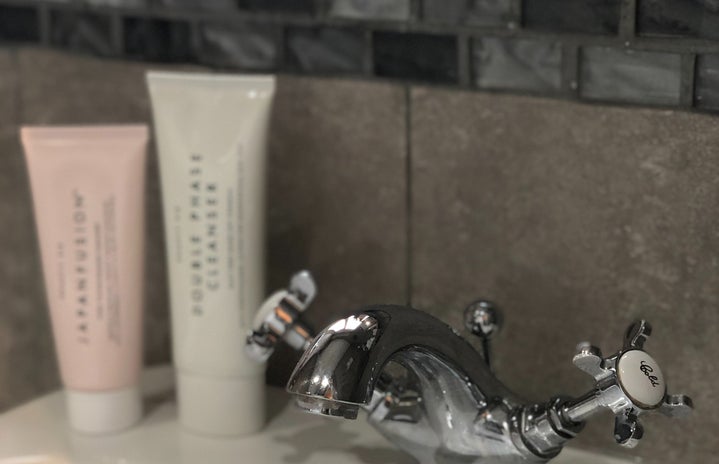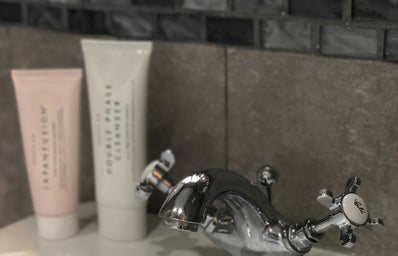For the longest time, my mom feared that using anti-aging products at too young of an age would actually destroy her skin as she grew older. Alas, my worry-filled mother apparently doesn’t know best when it comes to skincare technology. (She is usually right in everything else, though.) Does this myth sound familiar to you? Don’t worry, there is plenty more where that came from when discussing anti-aging products for people in their 20’s.

The first thing to understand about aging is that there are two types of processes: Intrinsic and extrinsic aging.
Intrinsic aging is inevitable and is the natural aging of every human being. Due to this process, everyone starts to lose 1% of collagen every year after the age of 20. As a result, wrinkles, although slight, are bound to happen.
Extrinsic aging happens due to sun exposure and environmental damage. Tanning, pollution and sun spots all make extrinsic aging occur even quicker in addition to intrinsic aging.
The most important thing to know about anti-aging is that prevention is essential. You cannot start preventing wrinkles when you already have them, you know? It’s like calling the fire department to hose down your house after it has already burnt down.
Sunscreen
The first prevention tactic is sunscreen and avoiding overexposure to the sun. UV rays not only cause skin cancer and sunburn, but they actually break down your skin’s elasticity as well. Over time, the more sun exposure you have, the quicker your skin will begin to age.
Ingredients
The most important ingredients to look for in your skincare products for anti-aging are Vitamin C, Vitamin E, Chemical exfoliators (AHA/BHA/PHA), Collagen, Hyaluronic Acid, Ceramide, Adenosine, Niacinamide and anything rich in Antioxidants.
-
Vitamin C: Aids in elasticity, collagen production, brightens dull skin, slows down premature aging and reduces hyperpigmentation and dark spots.
-
Vitamin E: Assists in moisturizing, nourishing, scars, burns, and protects skin from environmental damage.
-
Chemical Exfoliators: Renews skin and removes dead skin for proper cell turnover.
-
Collagen: Encourages cell renewal and reduces facial contractions to prevent wrinkles.
-
Hyaluronic Acid: Alleviates dry skin, reduces fine lines and wrinkles, accelerates wound healing.
-
Ceramide: Helps skin retain moisture, protects against environmental damage.
-
Adenosine: Skin restoring, anti-wrinkle, decrease inflammation,
-
Niacinamide: Restores moisture, protects against sun damage, minimizes wrinkles and fine lines, helps with acne, regulates oil, minimizes redness.
Silk Pillowcase
Using a silk pillowcase helps tremendously with PREVENTING wrinkles. Non-silk pillowcases have the tendency to pull and tag on your skin during your sleep. Silk is slick and smooth and helps your face slide without tugging.

Retinol
It is actually recommended that retinol be implemented into your skincare routine starting at the age of 25. There is no harm in using it earlier, however, before 25, it could be unnecessary. Retinol is the most popular and effective form of anti-aging because it completely renews your skin, plumps it, and reduces wrinkles, and boosts your body’s collagen production. However, be warned that retinol should NEVER be mixed with chemical exfoliants such as AHAs and BHAs. In addition, retinol is very strong and could make your skin dry and flakey for a bit. Just apply it at night and use a moisturizer and sunscreen in the morning. (Seriously, you really need sunscreen with this stuff.)
Helpful Tips
-
Products that burn are not “working,” they are literally burning your skin.
-
Your face stretches from the top of your forehead to your nipples. Yup, nipples.
-
Do your research. No, Twitter, Tik Tok, and Facebook are not reliable sources.
-
Your diet plays a major part in your skincare.
-
Please Please Please stop frying your skin until it looks like leather.




